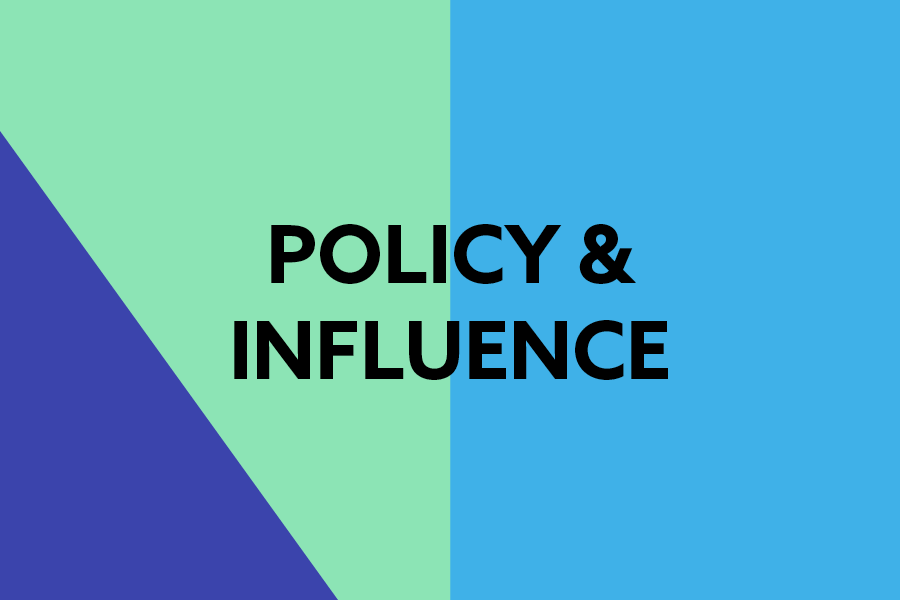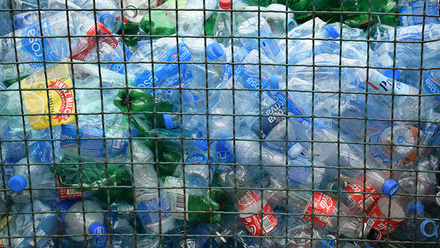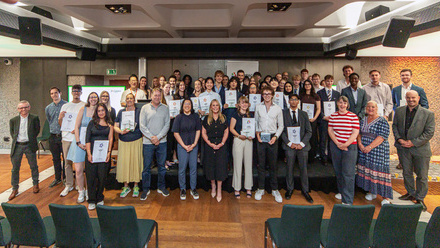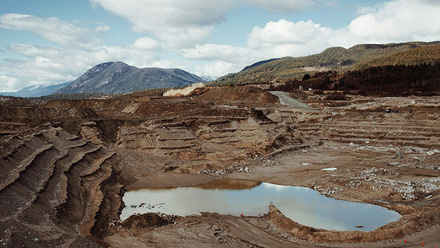IOM3 welcomes new Secretaries of State
IOM3 has highlighted the key role of materials, minerals and mining to newly appointed Secretaries of State.

IOM3 CEO Dr Colin Church CEnv FIMMM has written to Jonathan Reynolds, Ed Miliband, Steve Reed and Peter Kyle congratulating the new Secretaries of State on their appointments and highlighting the key role of materials, minerals and mining across their respective departments.
As set out in the recently published IOM3 policy priorities, the letters emphasised that a proper focus and strategic approach to materials and minerals is vital to the UK’s economic, social and environmental development. This includes competitiveness, health, national security and reaching net-zero.
Writing to the Secretary of State for Science, Innovation and Technology, Dr Church stressed that a UK Materials Strategy is necessary to ensure maximum benefit to the UK economy and society. Materials and minerals are critical building blocks of our daily life and essential for a range of industries from automotive, aerospace and construction, through to defence and energy. Materials activity, however, is currently uncoordinated and fragmented.
Recent global events and changes in geopolitics have highlighted the vulnerability in supply chains of materials. This has been reflected by resource policy developments in a number of countries and business action to restructure supply chains and reduce risks. Alongside supply vulnerability, the demand for materials continues to grow.
The letter noted the pivotal work being undertaken by the Henry Royce Institute in taking a commendable step towards such a strategy with development of the National Materials Innovation Strategy and publication of its interim report. This important work should be supported and built on to develop a comprehensive UK Materials Strategy.
Addressing the Secretary of State for Business and Trade, IOM3 called for a bolstered approach to critical minerals, expanding the focus to recognise that technology, industry and the low-carbon transition do not rely on individual minerals or elements, but on combinations processed into engineered materials. This is also important as critical materials are mainly useful as part of components or products and the pathway from ore/element to end use is more complex and open to challenges. In addition, given elements are commonly required in a use-dependent form.
Building on this, the letter went on to highlight the crucial role of the foundation industries – cement, glass, ceramics, paper, metals, and bulk chemicals. They produce over 75% of the materials we see around us and are used in almost every industry. However, they tend to be energy intensive, consume significant quantities of raw materials, produce large amounts of waste and are responsible for over 10% of UK CO2 emissions. Support is therefore essential for these industries to decarbonise at the urgent pace required, move towards a more circular economy, and remain internationally competitive. Otherwise, the UK will not be able to secure domestic supplies of vital materials, avoid import dependency and reduce associated impacts of emissions.
It also highlighted the risks posed to the value chain and UK economy by the significant and growing skills gap. It is necessary to modernise perceptions and develop a more universal appreciation of the contribution materials, minerals and mining make to our everyday life. The need for skilled professionals to carry out and regulate this work effectively and responsibly, in a way that considers environmental, carbon and social impacts, is clear.
The letter concluded by calling for the industrial strategy to properly reflects the underpinning role and strategic importance of materials and minerals.
In the letter to the Secretary of State for Energy Security and Net Zero, IOM3 highlighted the significant increase in demand for metals and minerals, including those required to meet the Paris climate change target, and stressed the need to transition to a more circular economy. Resource demand is immense (over 100 billion tonnes of resources enter the global economy each year) and increasing. This is further exacerbated by the changing global environment, geopolitical tension and international competition for resources. The letter also noted that materials production and use drive significant greenhouse gas emissions. Ensuring that we use these materials as efficiently as possible is essential if we are to meet our climate goals. This means developing processes and materials innovations that support decarbonisation, as well as ensuring that materials are kept in use for as long as possible at as high a value as possible – essentially, delivering a more circular economy. As well as supporting decarbonisation, a more circular economy can also improve security of supply and build resilience to price volatility, support jobs, and reduce waste and pressure on the environment.
The letter highlighted that the current macroeconomic model, however, does not promote circular practices, consumption reduction or reward waste prevention sufficiently to drive the behaviour alone, so government intervention is essential.
Writing to the Secretary of State for Environment, Food and Rural Affairs, IOM3 expressed support for the announced priority to move Britain to a zero-waste economy. The letter noted that key to its success will be maintaining momentum and implementing packaging Extended Producer Responsibility – delivering the scheme as soon as possible, with an effective fee modulation system to incentivise more circular design and unlock investment in infrastructure. It continued by underlining the opportunity that applying Extended Producer to other material-intensive product sectors offers to further accelerate the transition to a more circular economy.
IOM3 has also partnered with a number of organisations representing individuals and organisations across the minerals and mining value chain to send a joint congratulatory letter to Bridget Phillipson, the new Secretary of State for Education, calling for minerals and mining to be included in Skills England’s assessment of future skills needs.







